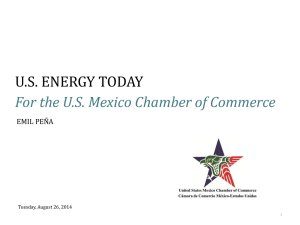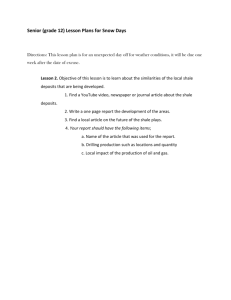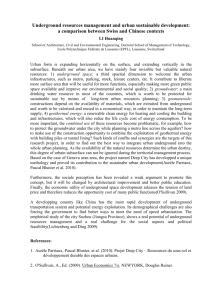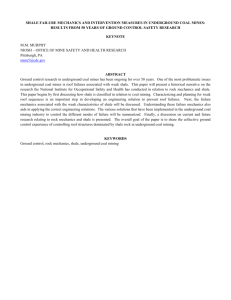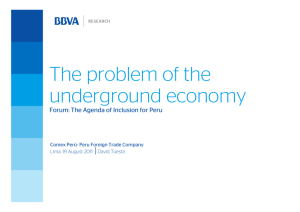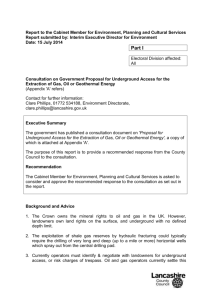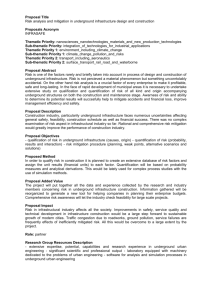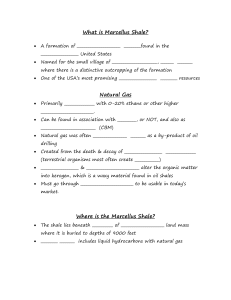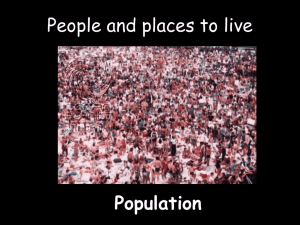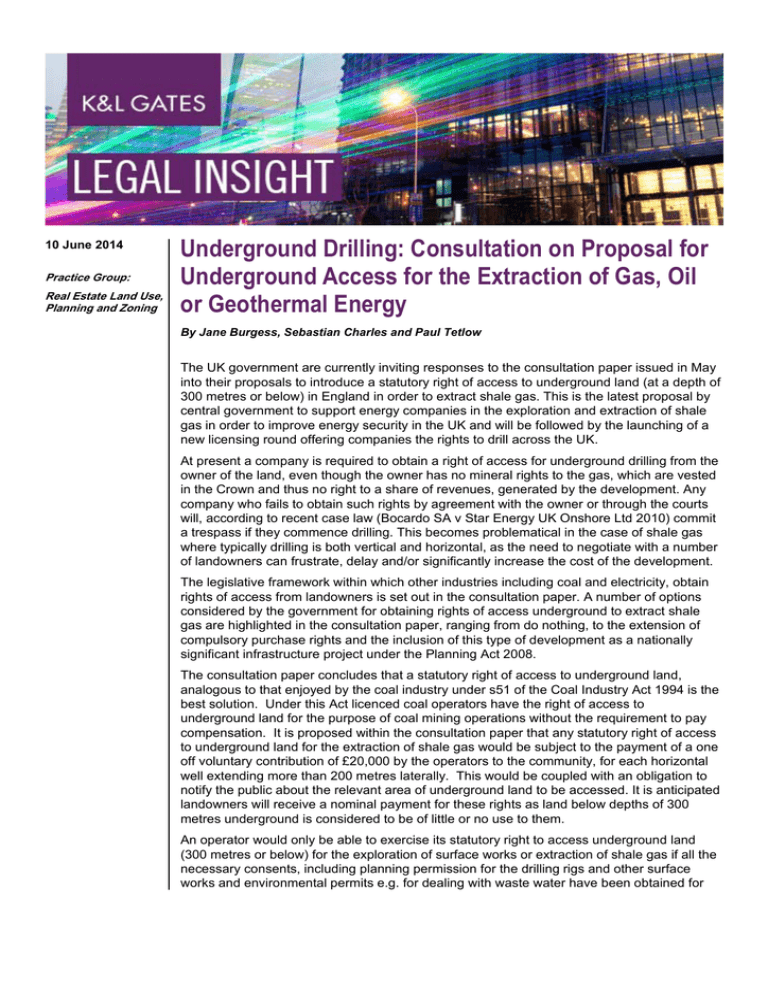
10 June 2014
Practice Group:
Real Estate Land Use,
Planning and Zoning
Underground Drilling: Consultation on Proposal for
Underground Access for the Extraction of Gas, Oil
or Geothermal Energy
By Jane Burgess, Sebastian Charles and Paul Tetlow
The UK government are currently inviting responses to the consultation paper issued in May
into their proposals to introduce a statutory right of access to underground land (at a depth of
300 metres or below) in England in order to extract shale gas. This is the latest proposal by
central government to support energy companies in the exploration and extraction of shale
gas in order to improve energy security in the UK and will be followed by the launching of a
new licensing round offering companies the rights to drill across the UK.
At present a company is required to obtain a right of access for underground drilling from the
owner of the land, even though the owner has no mineral rights to the gas, which are vested
in the Crown and thus no right to a share of revenues, generated by the development. Any
company who fails to obtain such rights by agreement with the owner or through the courts
will, according to recent case law (Bocardo SA v Star Energy UK Onshore Ltd 2010) commit
a trespass if they commence drilling. This becomes problematical in the case of shale gas
where typically drilling is both vertical and horizontal, as the need to negotiate with a number
of landowners can frustrate, delay and/or significantly increase the cost of the development.
The legislative framework within which other industries including coal and electricity, obtain
rights of access from landowners is set out in the consultation paper. A number of options
considered by the government for obtaining rights of access underground to extract shale
gas are highlighted in the consultation paper, ranging from do nothing, to the extension of
compulsory purchase rights and the inclusion of this type of development as a nationally
significant infrastructure project under the Planning Act 2008.
The consultation paper concludes that a statutory right of access to underground land,
analogous to that enjoyed by the coal industry under s51 of the Coal Industry Act 1994 is the
best solution. Under this Act licenced coal operators have the right of access to
underground land for the purpose of coal mining operations without the requirement to pay
compensation. It is proposed within the consultation paper that any statutory right of access
to underground land for the extraction of shale gas would be subject to the payment of a one
off voluntary contribution of £20,000 by the operators to the community, for each horizontal
well extending more than 200 metres laterally. This would be coupled with an obligation to
notify the public about the relevant area of underground land to be accessed. It is anticipated
landowners will receive a nominal payment for these rights as land below depths of 300
metres underground is considered to be of little or no use to them.
An operator would only be able to exercise its statutory right to access underground land
(300 metres or below) for the exploration of surface works or extraction of shale gas if all the
necessary consents, including planning permission for the drilling rigs and other surface
works and environmental permits e.g. for dealing with waste water have been obtained for
Underground Drilling: Consultation on Proposal for Underground Access for
the Extraction of Gas, Oil or Geothermal Energy
the development from the appropriate regulators. Any drilling works above 300 metres will
still require agreement with the owner or a court order granting such rights to an operator.
The government have invited consultation responses to the paper by 15 August 2014. Any
legislative changes will be included in the Infrastructure Bill which was announced in the
Queens Speech on 4 June 2014.
Should you require further information about any of the matters contained within this alert or
any advice on how these reforms may impact on your development proposals, please
contact the authors or your usual K&L Gates contacts.
Authors:
Jane Burgess
jane.burgess@klgates.com
+44.(0).20 7360 8271
Sebastian Charles
sebastian.charles@kglates.com
+44.(0).20 7360 8205
Paul Tetlow
paul.tetlow@klgates.com
+44.(0).20 7360 8101
Anchorage Austin Beijing Berlin Boston Brisbane Brussels Charleston Charlotte Chicago Dallas Doha Dubai Fort Worth Frankfurt
Harrisburg Hong Kong Houston London Los Angeles Melbourne Miami Milan Moscow Newark New York Orange County Palo Alto Paris
Perth Pittsburgh Portland Raleigh Research Triangle Park San Diego San Francisco São Paulo Seattle Seoul Shanghai Singapore Spokane
Sydney Taipei Tokyo Warsaw Washington, D.C. Wilmington
K&L Gates practices out of 48 fully integrated offices located in the United States, Asia, Australia, Europe, the Middle East and South
America and represents leading global corporations, growth and middle-market companies, capital markets participants and
entrepreneurs in every major industry group as well as public sector entities, educational institutions, philanthropic organizations and
individuals. For more information about K&L Gates or its locations, practices and registrations, visit www.klgates.com.
This publication is for informational purposes and does not contain or convey legal advice. The information herein should not be used or relied upon in
regard to any particular facts or circumstances without first consulting a lawyer.
©2014 K&L Gates LLP. All Rights Reserved.
2

